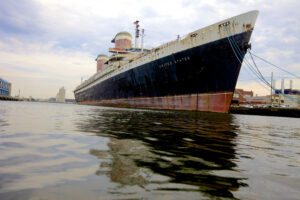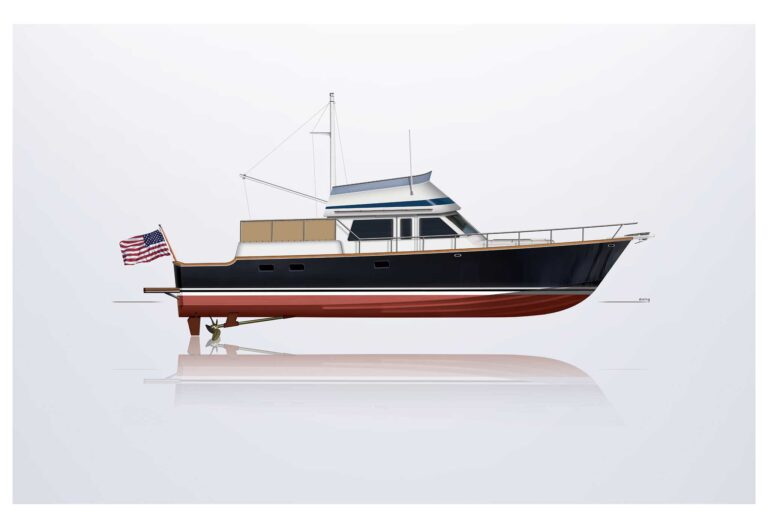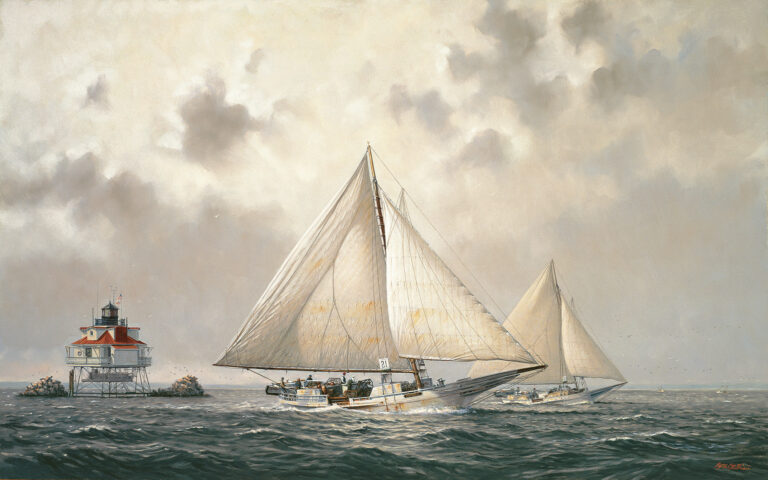The U.S. International Trade Commission has rejected Brunswick Corp.’s claims that Japanese manufacturers sold their outboards at an unfair market value in the United States, easing fears of potential price increases on Japanese engines as a result of U.S.-imposed tariffs.
The January ruling, which stemmed from an anti-dumping complaint filed last January, said there was no basis for Brunswick’s injury claims. While Brunswick expressed disappointment with the ruling, industry leaders say they are relieved the issue has been settled.
“It was a very disturbing and unsettling thing,” says Phil Keeter, president of the Marine Retailers Association of America. “From a retailer’s point of view, it’s good just to get the whole thing over with.”
Keeter says marine retailers were uncertain how a favorable ruling for Brunswick would have affected them — and ultimately consumers. There were concerns that U.S.-imposed tariffs would lead to price increases on Japanese engines. “It was not understood by retailers,” says Keeter. “At first everybody thought the price of the product would go up.”
The case largely was seen as a legal battle between Mercury Marine, a subsidiary of Brunswick, and Yamaha, which led the defense. But other Japanese-made outboards — including Honda, Suzuki and Tohatsu/Nissan — would have been affected as well.
Japanese manufacturers say the ruling translates into a win for the customer, allowing companies to focus on customer satisfaction and product development. “We’re delighted,” says John Fulcher, senior manager at Honda Marine. “The whole premise for our case was the consumer.”
Brunswick filed the petition Jan. 8, 2004, with the ITC and the U.S. Department of Commerce. The Commerce Department issued a preliminary determination in August that Japanese manufacturers indeed were dumping their outboards, and ordered all manufacturers to post 22.52-percent bonds for any engine imported into the United States. A final determination in late December reduced that amount to 18.98 percent. Fulcher says the tariff would have been a significant increase in cost for the company that possibly would have been passed on to consumers.
The ITC held a hearing Dec. 14 and considered arguments from both sides, including testimony from boatbuilders who testified either for Mercury or the Japanese, or wrote letters to the ITC. The commission announced its decision Feb. 2, although a full report was expected later in the month.
“Given the substantial evidence of harm to the industry presented by Mercury, we are disappointed with the ITC’s decision,” says Patrick C. Mackey, president of Mercury Marine, in a statement. “Dumping was proved, and we demonstrated that our outboard unit has suffered since 2000, so we don’t understand how this conclusion was reached.”
Since no injury was found, the bonds that were collected will be released and refunded to the affected companies.
Mackey also says it will be back to business as usual for Mercury. “We want to assure our dealers and independent boatbuilder customers that the decision will in no way lessen our commitment to providing the quality products and services they have come to expect from Mercury,” he says.
Keeter says the legal battle between Mercury and Yamaha also distracted the industry from other concerns, such as the Grow Boating campaign, the industrywide initiative to increase boater participation. That sentiment was echoed by Yamaha.
“Yamaha has consistently stated that from the day that Brunswick filed its complaint that there wasn’t any dumping,” says Phil Dyskow, president of the Marine Group of Yamaha Motor Corp. U.S.A. “Most important from an industry standpoint, we can now get back to the business of boating. The legal fees Brunswick spent and what they forced us to spend could have funded Grow Boating for a long time.”
Shortly after the ITC ruling, Yamaha announced that a federal lawsuit brought by Brunswick against it over the powerheads the Japanese manufacturer sells to Mercury Marine had been settled. Under terms of the agreement, Yamaha will continue to supply its 75- to 115-hp 4-stroke powerheads to Mercury in the same quantities and at the same prices provided for in the contract between the two firms, according to Yamaha. Yamaha had imposed a 90-plus-percent price increase on those powerheads after the dumping complaint was filed. Brunswick later asked to withdraw the powerheads from the dumping investigation, and the U.S. Commerce Department agreed.










